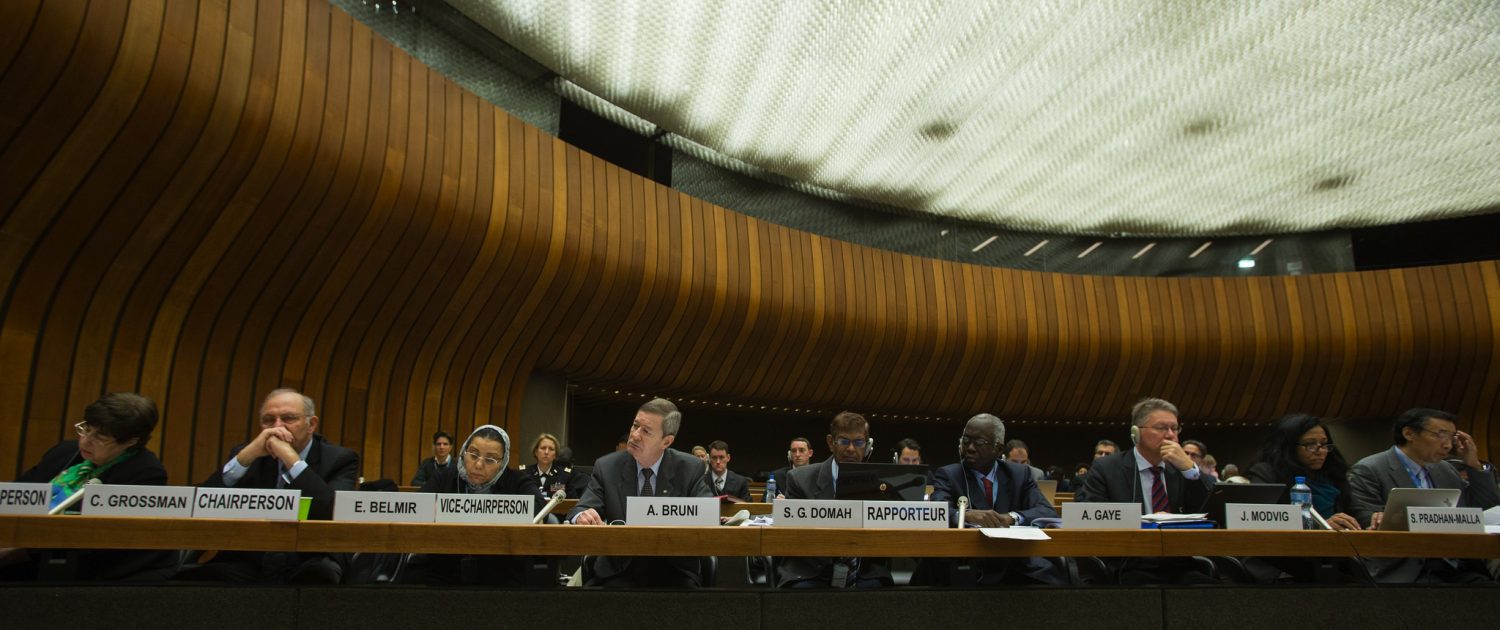
Torture being systematically practiced in Nepal
The Committee against Torture, a respected body of experts monitoring implementation of the Convention against Torture, has said that there are well-founded indications that torture is being systematically practiced in Nepal.
After six years of consideration, the Committee has published a highly critical report concluding that “the authorities not only fail to refute well-founded allegations but appear to acquiesce in the policy that shields and further encourages these actions”. The report was adopted in May 2011, but has only recently been made public.
“This is a significant moment, when this august body confirms what organizations such as Advocacy Forum have been saying for many years – that torture is condoned by the authorities of this country”, said Mandira Sharma, chairperson of Advocacy Forum.
The Committee had been considering the issue of torture in Nepal on a confidential basis since November 2006. After formally initiating an inquiry in 2009, it requested to visit Nepal in 2010 but the Government refused.
Advocacy Forum and REDRESS made a key submission to the Committee in March 2010 providing evidence of the systematic practice of torture and systematic breaches of Nepal’s obligation to investigate, prosecute and provide reparations, which was drawn on in detail by the Committee in reaching its conclusions.
In its report, the Committee found that Nepal had failed to effectively prosecute those responsible for torture even when the evidence was extensive and national courts had established responsibility. It also found that Nepal had failed to put an end to practices such as falsification of detention records, police holding individuals incommunicado for days or periods longer than 24 hours before presentation to a judge, and police refusals to register complaints from citizens.
According to the Committee, Nepal also failed to ensure that detainees receive medical examinations conducted by independent physicians, that judges exclude confessions obtained through torture from legal proceedings, and that promotions of, as well as refusals to suspend, officials accused of torture or extrajudicial killings are banned.
The Committee’s findings suggest that there is “widespread and deliberate practice of torture in Nepal”. The Nepalese Government in April 2011 provided comments and observations refuting the report’s findings. The Government claimed that the findings of the report are based on information provided as part of a campaign against Nepal, stating that it “neither condones torture, nor does it have a State policy to let perpetrators go with impunity”.
The Nepalese Government went on to provide examples of disciplinary action taken against police officers who had been found guilty of committing torture, stating the punishments have included demotion to a lower post, removal from service, withholding of promotion and grade, and suspension.
In response to these specific points made by the Government, Mandira Sharma, from Advocacy Forum, stated:
“The government of Nepal does not want to understand the gravity of this crime. For the government to even suggest that demotion and suspension are sufficient penalties for grave acts such as torture shows the lack of political will at play here”.
“Torture is a serious crime under international law, and indeed those responsible can be prosecuted anywhere in the world. Nepal has signed the Convention against Torture and has specific responsibilities to prevent and punish it – responsibilities that this report shows are not being fulfilled”, added Dadimos Haile, acting Director of REDRESS.
The Committee made 16 recommendations, including for the prompt investigation of any complaints; for torture to be made a crime and for those suspected of torture to be suspended from duty and barred from participation in peacekeeping pending the outcome of an inquiry.
It further called for statutes of limitation on torture to be abolished and for juveniles to be detained separately based on their age and the seriousness of the offence they have committed. “We urge the government to immediately implement the recommendations of the Committee. Even in the absence of a parliament, there is much that can be done to prevent, investigate and punish torture,” said Haile.
Further information from:
Eva Sanchis, REDRESS, at [email protected] or +44 (0) 2077931719
Background
The Committee against Torture (CAT) inquiry into Nepal was carried out under the procedure in Article 20 of the Convention against Torture, which allows the Committee to undertake a confidential inquiry if it receives reliable information containing well-founded indications that torture is being systematically practised in a state which is a party to the Convention. Inquiries under Article 20 are exceptional.
To date, since its establishment in 1988, the CAT has carried out eight such inquiries. In its June report, CAT notes that despite its numerous efforts to solicit cooperation and comments from the Government of Nepal, Nepal provided information to the Committee on only one occasion, in April 2009, and did not avail itself of the opportunity it was offered to clarify the situation by accepting a visit of the Committee members undertaking the inquiry that would enable the Committee to form its view on the state of human rights protection in Nepal based on direct sources of information. For the full report click here
